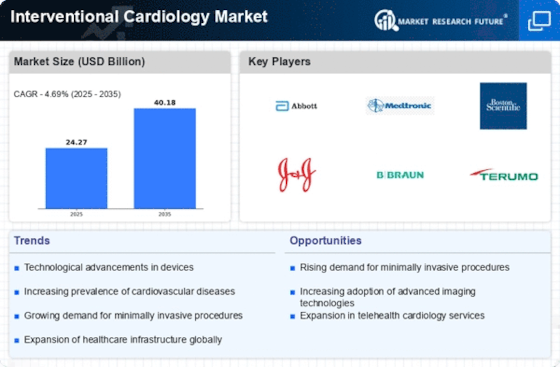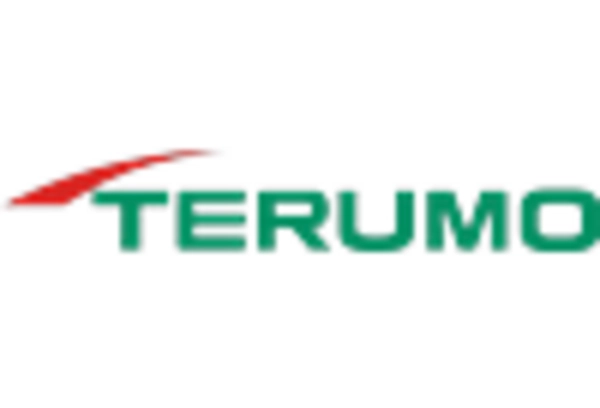Market Trends
Key Emerging Trends in the Interventional Cardiology Market
New technology alter invasive cardiology constantly. Innovative catheter, imaging, and real-time tracking technologies are driving market trends. These advances make medical treatments safer, more precise, and more successful, improving patient outcomes.
Less invasive cardiac interventional procedures are trending. Patients are increasingly selecting minimally invasive procedures like TAVR and PCIs over open-heart surgery. Generally, patients recover quicker and live better. They also remain in hospitals less. Invasive cardiology increasingly uses structural cardiac operations. TAVR and ASD repairs are becoming routine treatment. This trend suggests that invasive structural heart disease treatments are improving. Artificial intelligence is growing in invasive cardiology. AI techniques are helping imaging systems interpret complex data, plan treatments, and provide better procedure instructions. People make better judgments and work quicker with AI. To better see the circulatory system in invasive cardiology, imaging tools are evolving. High-resolution imaging technologies like IVUS and OCT make therapy monitoring simpler. This helps surgeons understand vessel structure and put devices more correctly. Robotic-assisted invasive cardiology treatments are growing. Doctors may perform more accurate and controlled surgeries on intricate bodies using robotic devices. Robotics aid in therapy, improving therapeutic abilities. The market is favoring personalized treatment. Interventional cardiologists may customize treatment strategies with better imaging, diagnosis, and analysis. This boosts outcomes and reduces issues. Drug-eluting stents dominate the invasive cardiology market. These devices deliver anti-restenosis drugs that open arteries following therapy. Drug-eluting devices are being improved and made safer via research and development. Outpatient or same-day invasive cardiac therapies are increasing. As technology advances and less invasive treatments become more popular, certain surgeries may be done without hospitalization. This tendency reflects the greater transition toward patient-centered, worth-based treatment. In interventional cardiology, chronic complete blockage interventions are gaining popularity. New approaches and technology for fully blocked coronary arteries are being developed to increase CTO success rates. This trend suggests a desire to improve invasive cardiology for complex situations. Global interventional cardiac services growth is a major trend. These innovative medicines are being made simpler to get in emerging markets and underserved locations. These include training healthcare personnel, creating cardiac catheterization laboratories, and enhancing infrastructure to provide fair access to interventional cardiology operations. The market for invasive cardiology is emphasizing post-treatment care. To keep patients getting better and prevent cardiovascular events, comprehensive post-interventional treatment, including taking medications as prescribed, changing their lifestyle, and monitoring them for a long time, is becoming essential.


















Leave a Comment